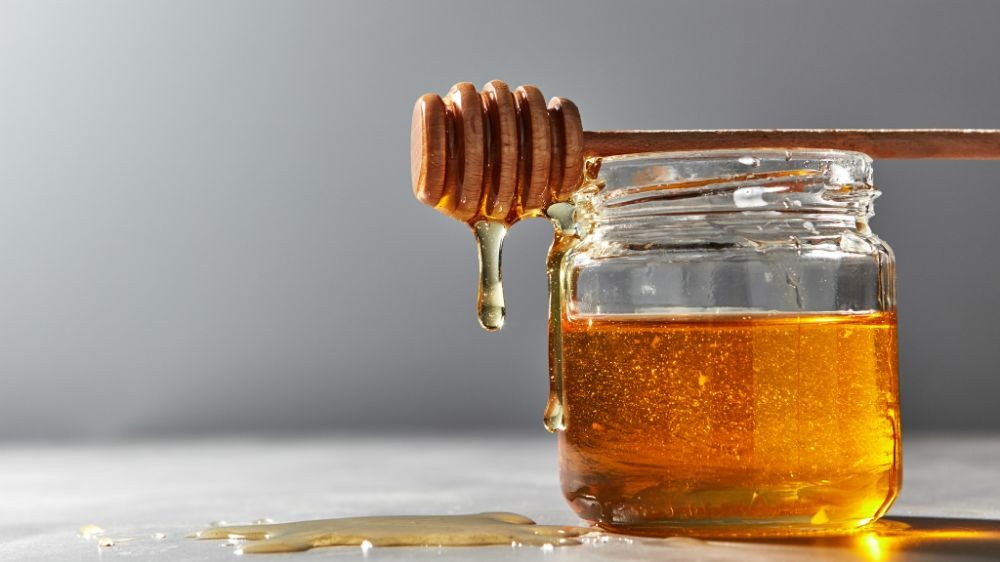
Honey is a sweet fluid made by honeybees using the nectar of
flowering plants. There are about 320 different varieties of honey, which vary
in color, odor and flavor. Honey contains mostly sugar, as well as a mix of
amino acids, vitamins, minerals, iron, zinc and antioxidants. In addition to
its use as a natural sweetener, honey is used as an anti-inflammatory,
antioxidant and antibacterial agent. People commonly use honey orally to treat
coughs and topically to treat burns and promote wound healing.
·
Cardiovascular disease. Antioxidants in honey might be
associated with reduced risk of heart disease.
·
Cough. Studies suggest that eucalyptus honey, citrus honey and
labiatae honey can act as a reliable cough suppressant for some people with
upper respiratory infections and acute nighttime cough.
·
Gastrointestinal disease. Evidence suggests honey might help
relieve gastrointestinal tract conditions such as diarrhea associated with
gastroenteritis. Honey might also be effective as part of oral rehydration
therapy.
·
Neurological disease. Studies suggest that honey might offer
antidepressant, anticonvulsant and anti-anxiety benefits. In some studies,
honey has been shown to help prevent memory disorders.
· Wound care. Topical use of medical-grade honey has been shown
to promote wound healing, particularly in burns. Honey is likely safe for use as a natural
sweetener, cough suppressant, and topical product for minor sores and wounds. Avoid giving honey — even a tiny taste —
to babies under the age of 1 year. Honey can cause a rare but serious
gastrointestinal condition (infant botulism) caused by exposure to Clostridium
botulinum spores. Bacteria from the spores can grow and multiply in a baby's
intestines, producing a dangerous toxin. Some people are sensitive or
allergic to specific components in honey, particularly bee pollen. Although
rare, bee pollen allergies can cause serious, and sometimes fatal, adverse reactions
Comments (0)
Recent posts

.jpeg)
Overthinking
12 Dec 2022
Improve your memorey
12 Dec 2022.jpeg)
أهمية ڤيتامين د
7 Dec 2022



